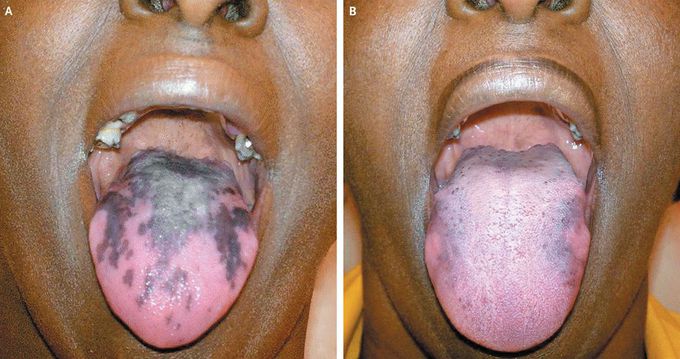


Chemotherapy-Induced Hyperpigmentation of the Tongue
After undergoing breast lumpectomy and biopsy of the sentinel lymph nodes, a 42-year-old woman with triple-negative invasive ductal carcinoma began adjuvant chemotherapy with doxorubicin, cyclophosphamide, and paclitaxel. After the second cycle of doxorubicin and cyclophosphamide, asymptomatic hyperpigmented macules and patches were noted on the patient's tongue (Panel A). There was no hyperpigmentation of the palms, soles, dermal creases, or nails, and the remainder of the physical examination was normal. Dermal hyperpigmentation is a well-known adverse effect of a number of chemotherapeutic agents and has been reported to occur in association with both doxorubicin and cyclophosphamide. The condition may be local or generalized and may affect skin, mucous membranes, nails, or hair. The underlying mechanism remains uncertain. In this patient, the tongue lesions started to fade after the completion of therapy and disappeared almost completely within 12 weeks (Panel B). Marcelo Blaya, M.D. Nakhle Saba, M.D. Tulane University, New Orleans, LA source: nejm.org

